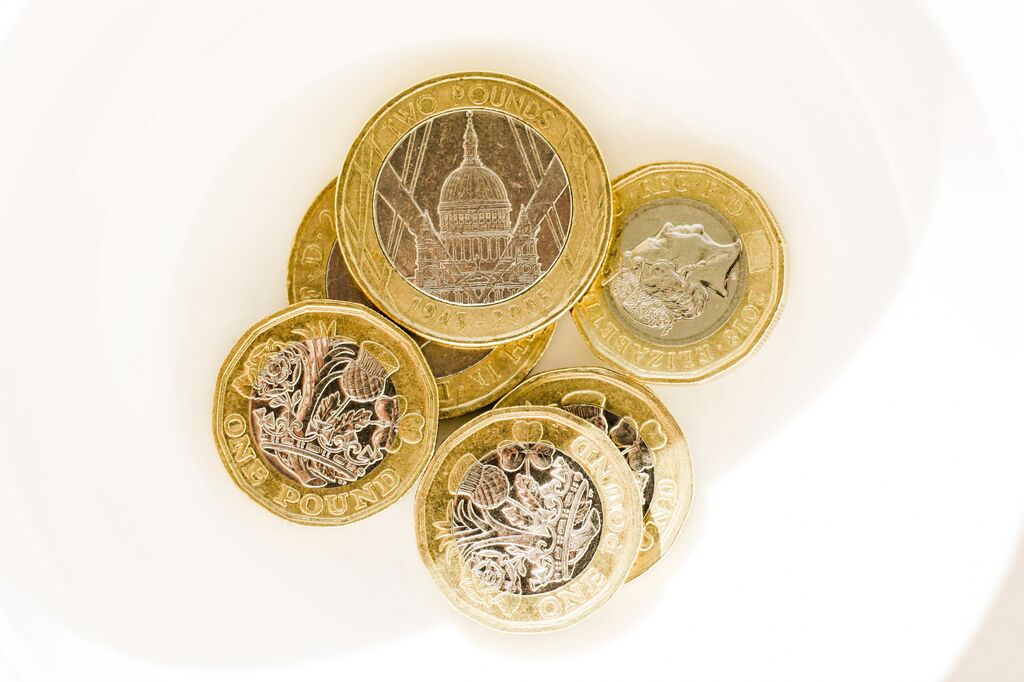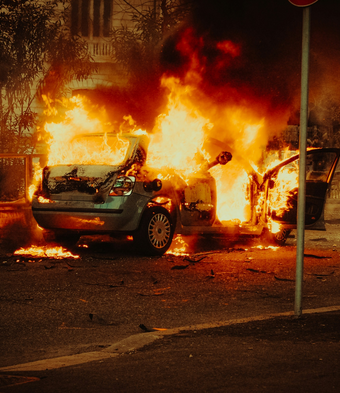God's big economic recovery plan!

I’m not sure whether it is because I’m the CEO or because I’m a graduate of the London School of Economics, but I’ve drawn the short straw of trying to set our current economic situation in a biblical context. To do so properly probably needs far more space than I have, but as you listen to the headlines and read the predictions for our economy, I trust that it is helpful to have an explanation and a challenge to carry us through these challenging times.
Let us recap where we are. Yesterday the Bank of England dropped a whole lot of bad news. They announced the largest rise in interest rates for 30 years, meaning millions of households will pay thousands of pounds more on their mortgages; and they forecast the longest recession in 100 years, with inflation remaining over 10% and unemployment rates rising to over 6% over the next year.
So, does God have an economic recovery plan for us? My faith, informed by His word, reassures me that the answer is yes, but not necessarily the one we might desire.
The Council chamber in Siena’s Town Hall has two remarkable murals dating back to medieval times when the city state was an economic powerhouse. As the Council members sat to make decisions they would see on one side a city state thriving and flourishing under a ‘good government’, while on the other, a picture portraying the suffering, famine, strife caused by bad leadership.
When I recall those murals I am reminded first, that God created a good world of plenty for all. But I also reminded that our story is marred by the effects of sin, where we toil against the thorns and thistles of the ground (and the financial markets!), where we see enmity not just between us and our Creator but between each and every one of us, neighbour against neighbour, and nation against nation.
But the mural was designed as a visual prompt to the merchants and politicians that sat there in the Council making decisions that impacted city life. The Council members had the power to restrain evil and to do good. We all have that power given to us by God as an integral part of what it means to be made in His image. We make decisions that have consequences, and even the choice not to act has repercussions.
Our Government has been put in place by God, and so we honour it and support it. Yet it is also an institution of fallen sinful people who make bad decisions and mistakes and so we can also criticise or challenge it, and in a democracy, choose to vote for another option. Similarly, the market is not a benign, neutral, invisible hand – it too is a product and a symptom of a fallen world.
In both the market and in politics, we should not give up our image-bearing responsibility as active agents in the world, we should be stewards not observers, and we should work to take what God has given us and use it for the good and the flourishing of all.
In hard economic times this will mean sacrifices on an individual and national level. The Bible reminds us that in times of hardship, the poor and vulnerable suffer disproportionately, and they need the protection of the strong. God is not averse to doing this through bold macro-economic solutions: just consider the radical nature of the year of Jubilee.
And we have examples of how God’s people have brought radical solutions to meet big challenges in Scripture. Joseph overturned Egypt’s economic system and provided perhaps the first example of a national food bank. Nehemiah responded to the cries of his people who were mortgaging their fields to eat and selling their family into slavery to pay their debt by reasserting God’s law of justice and care, and also through personal sacrifice. Rather than charge more taxes he paid for 150 officials out of his own pocket.
God may not have a detailed economic recovery plan for the Chancellor to enact in the UK in 2023; but he does have a story to tell us about where our problems come from, and principles laid out in Scripture for how we individually and as a nation should steward his Creation.
I wonder what the Nehemiah-like sacrificial challenge might be for both our leaders and for us as individuals. How might we care for our neighbours in need? My natural, sinful instinct when facing economic uncertainty is to hoard rather than to give, to justify what I want above generosity.
Yet in God’s economy, growth does not come from consuming but from giving away. Our God is the God of topsy-turvy economics. Let us not be naïve, but still trust in the Lord, for He is good; let us acknowledge sin and the limitations of government, market, leaders and ourselves, but also let us recognise our potential to do good.
The gospel is good news and brings wonderful hope out of what the world sees as defeat, pain and loss. May we have the courage and the boldness to have gospel-inspired eyes to see what we can do, advocate for, support, and challenge in the times ahead.






